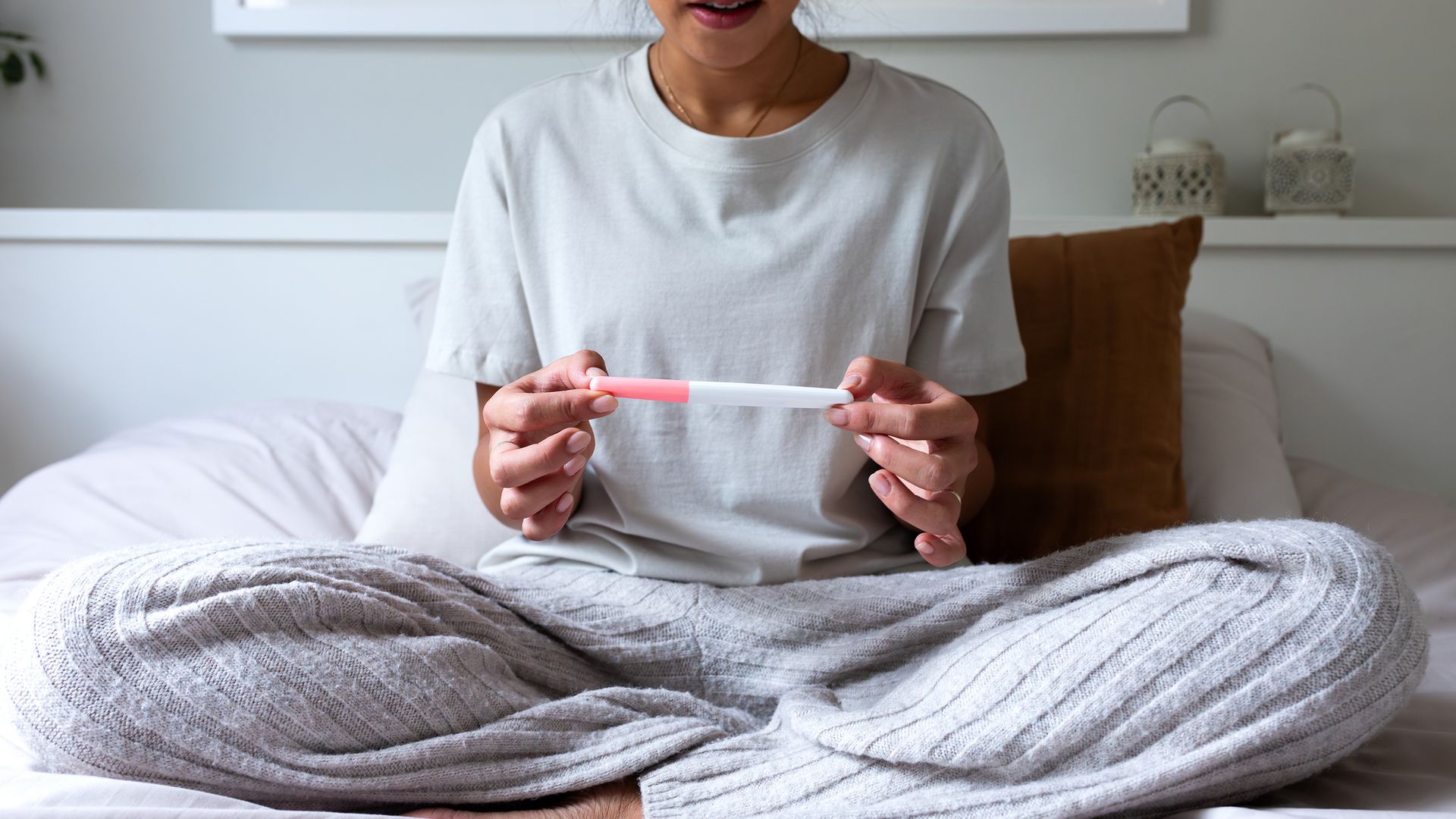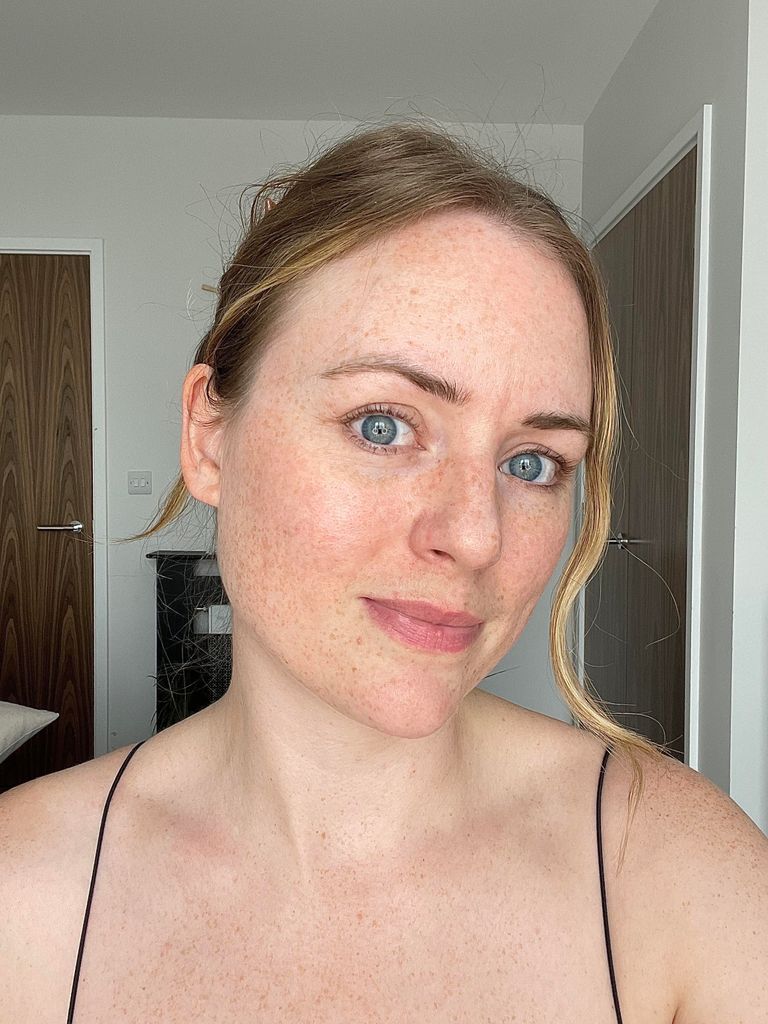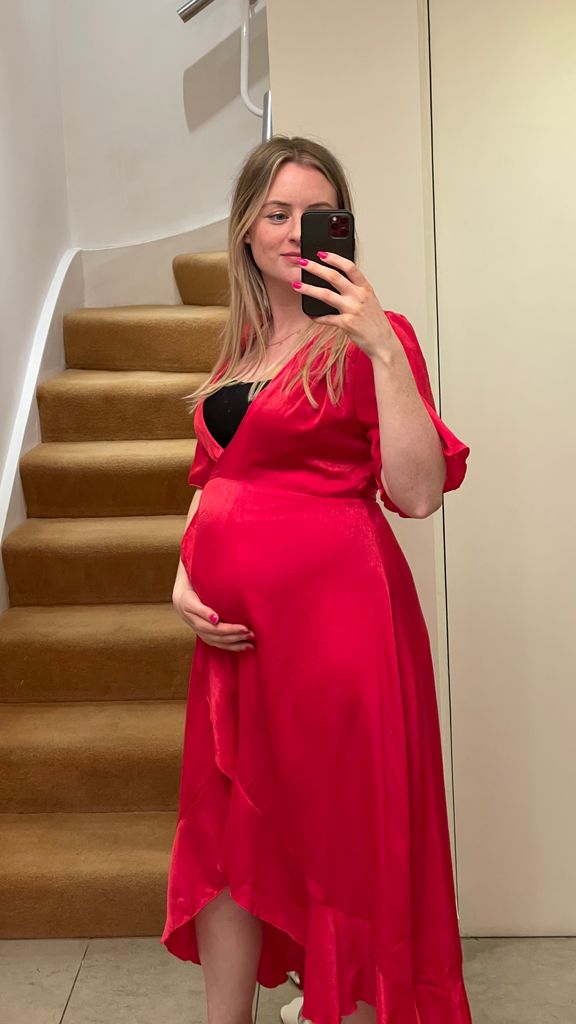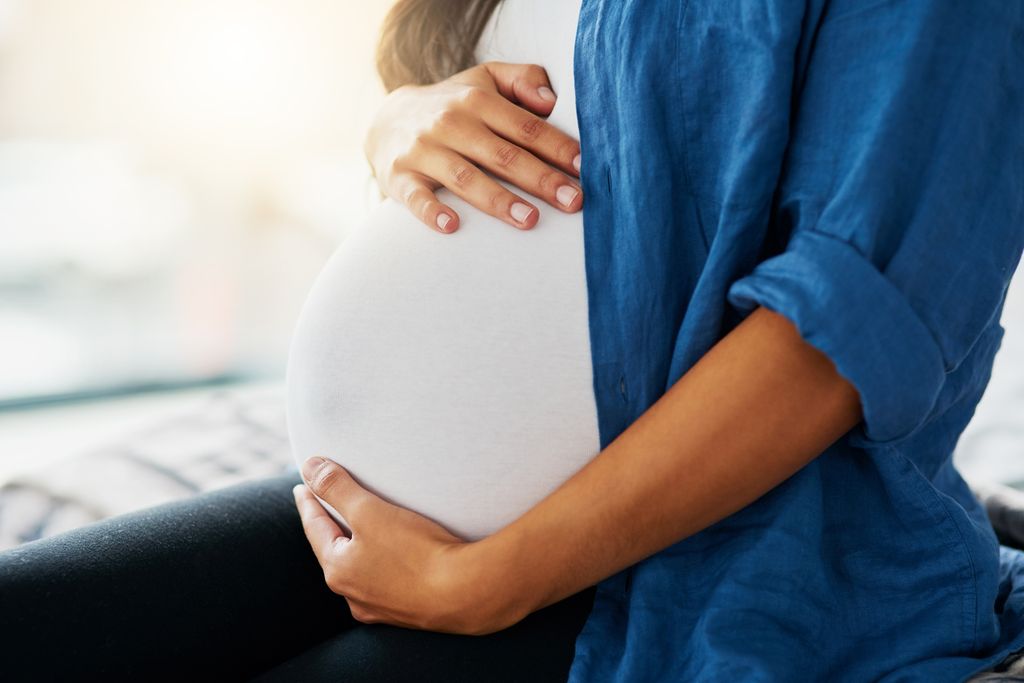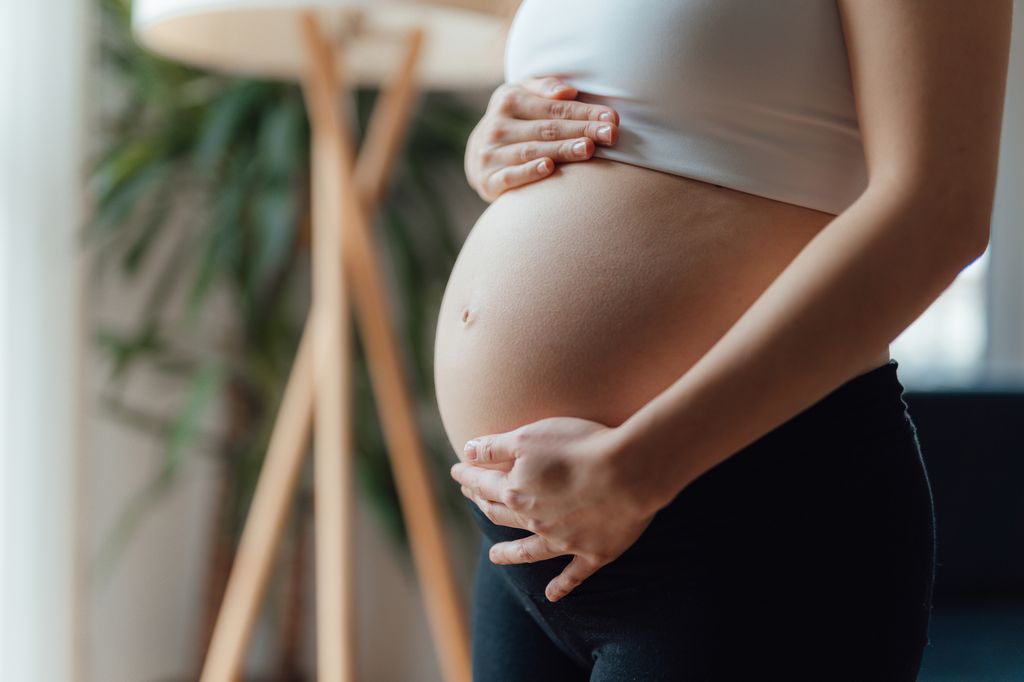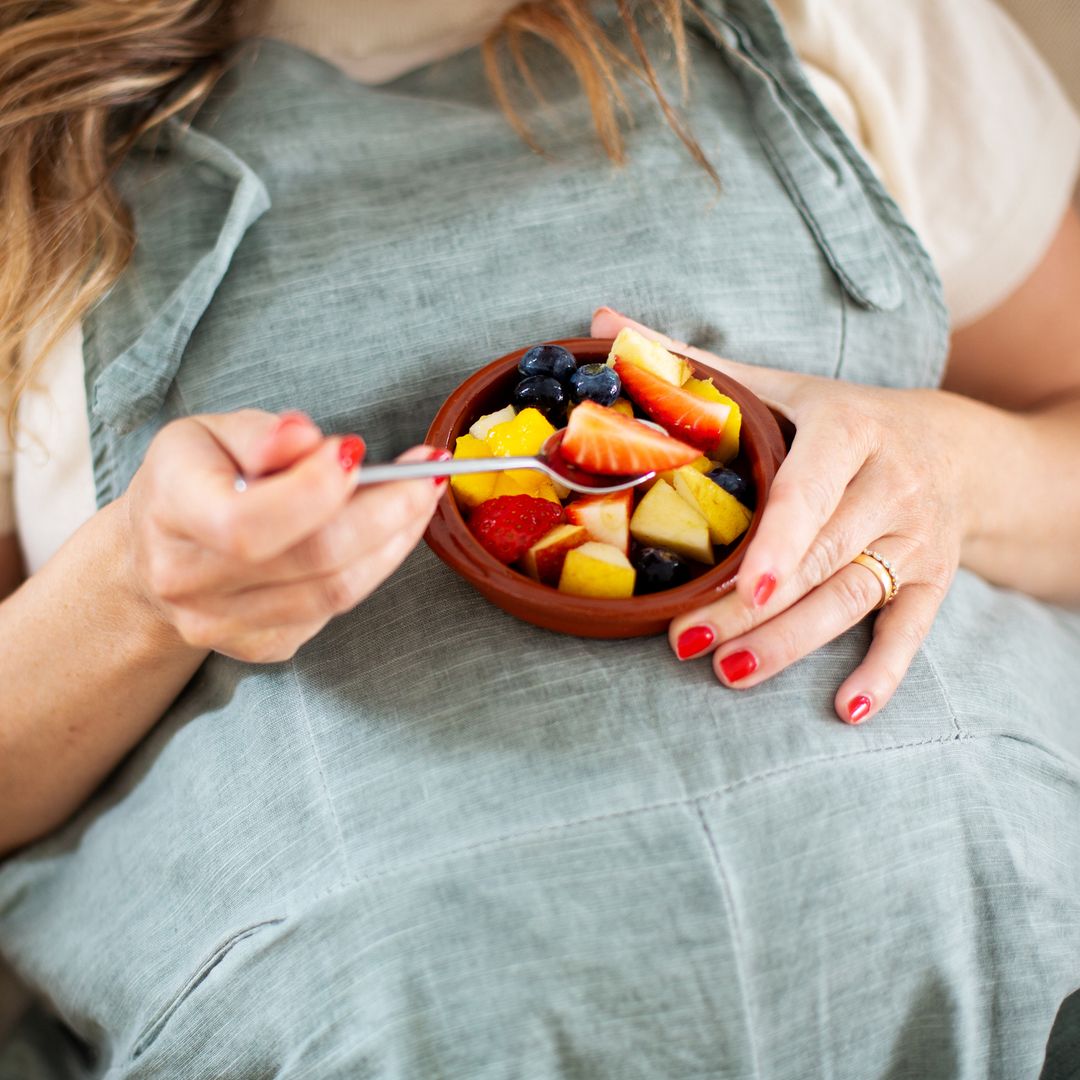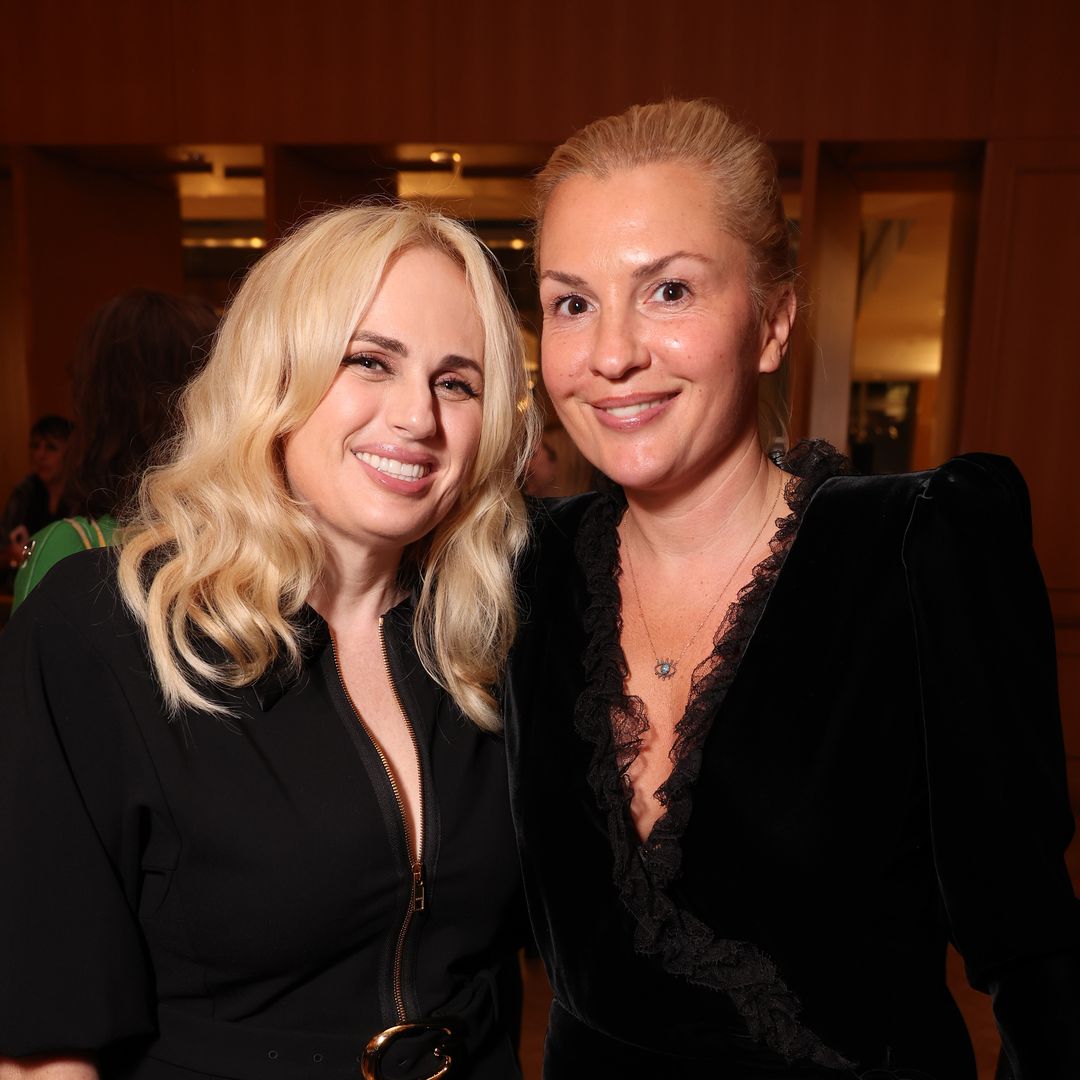Within days of finding out I was pregnant, I was overcome with sorrow – a word that feels dramatic to use, but the only one that encapsulates my emotional state at the time. All I wanted to do was stay inside and cry. Why? I couldn't tell you. I blamed hormones.
In a bid to find out if this was normal, I did what most people do and took to Google, with my search throwing up the term prenatal depression, also known as antenatal depression. Never in my life had I heard of prenatal depression, but with a little digging, I found out that those of us with antenatal depression are more likely to have postnatal depression. Which meant my sorrow had company: fear.
What is antenatal depression?
While postnatal depression is often talked about and screened for vigorously at every postpartum appointment, prenatal depression isn't as widely known.
It's estimated around 12% of pregnant women will go through prenatal depression – although many suspect the number is much higher and many women simply endure it, which I find easy to believe.
Prenatal depression symptoms
The symptoms are much the same as depression at any other time in your life: feeling sad, helpless, low or tearful a lot of the time. Feeling irritable or getting angry easily, losing interest in other people and the world around you, negative thoughts and difficulty concentrating or making decisions.
There are also symptoms that can be expected during pregnancy anyway, such as feeling tired all the time, difficulty sleeping or sleeping too much, eating too much (you're growing another human!), eating too little (understandable alongside nausea), and loss of libido. Combine that with the fact your hormones are haywire, and it's extremely difficult to know what is and isn't normal.
READ: Why didn't anyone warn me how bad mum guilt would be?
How prenatal depression impacted me
I cried almost every day, despite very much wanting to be pregnant. A combination of the sorrow and unrelenting nausea that consumed me day and night had me questioning if I could go through with the pregnancy within weeks.
On more than one occasion I sobbed to my partner, "I can't do it, I can't go on like this."
At four months pregnant, the nausea finally subsided and I attempted to socialise. But, feigning tiredness, I often left events early – I couldn't stomach anyone being happy for me when I was so wholeheartedly unhappy myself.
I wanted to be pregnant, and I wanted this baby, so it finally dawned on me, something was wrong.
After a tearful appointment my midwife advised I refer myself to my local IAPT (now called NHS Talking Therapies). Thankfully, pregnant and postnatal mothers jump the long NHS queue for mental health services, so within one month I was at my first counselling appointment.
Counselling
I spent the entire session crying, revealing how jealous I was of a friend three months ahead of me who was the happiest she's ever been, questioning what was wrong with me and confessing how much I resented my partner's physical and emotional freedom as I endured a pregnancy so he could have a child. Just talking about it was exhausting, so it started to make a little sense why living it was so hard.
As I entered my final months of pregnancy, sorrow began to consume me a little less and I was able to look forward. But I didn't do so with hope. The depression was easing, but what if it returned? What if it, once again, it took me months to realise and, worse still, what if I failed to properly care for my child in the meantime?
PREGNANCY: Why do I have to 'dress like a mum' just because I'm pregnant?
I knew I might need a lot of support so, in a panic, I began saying yes to every single social invitation that came my way in a bid to solidify friendships – a nonsensical endeavour considering I'd known most of my friends for 20 years. I also decided, rather last minute, to take antenatal classes in a bid to meet other mums-to-be (I gave birth before the final class).
My postnatal experience
When I look back my 'fourth trimester' I'm filled with joy – but it wasn't easy. I used nipple shields for the first month as I struggled to breastfeed my daughter (which led to many tearful moments).
RELATED: I'm a first-time mum and here's what you need to know about breastfeeding
We were back in hospital when she was five days old due to an infection that risked becoming sepsis. And, of course, the constant fear she might stop breathing or was wearing too much or too little clothing (which almost any new mum will relate to). And yet, these hardships blur into the background.
At three weeks postpartum I had my final counselling session. More were available, but I didn't want them and strongly believed I didn't need them.
READ: I wish I'd known how much my relationship would change after having a baby
It's almost impossible to prepare for parenthood, yet, somehow, I immediately felt both capable and confident as a mum. I co-slept despite it not being the done thing (the NHS has since published guidance on how to do so safely, as I was doing).
I relished the contact naps and within weeks I was hopping on London transport with her strapped to my chest – I had breastfeeding support sessions I couldn't miss after all (and a few brunches).
When people ask me now, almost two years since she was born, about postpartum and maternity leave, I always tell them how much I loved it.
Another baby?
When they ask about having a second, however, I'm hesitant to answer. I would love a newborn again, I want my daughter to have a sibling, and I was lucky enough to have a good birth so I don't fear another. But pregnancy? I just don't want to do that again.
Some sorrow has stayed with me, and probably will forever. Thanks to the counselling, something I allow myself to do is grieve. I don't know exactly what type of pregnancy experience I grieve for, but I allow myself a moment of mourning, every now and then, because mine was so hard. Hard enough to still bring me to tears, if I think about it for too long.
